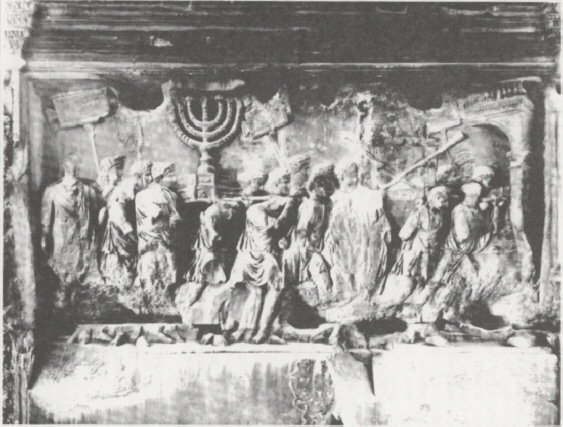Josephus: Jewish War Correspondent -- By: William C. Varner
Journal: Bible and Spade (Second Run)
Volume: BSPADE 03:3 (Summer 1990)
Article: Josephus: Jewish War Correspondent
Author: William C. Varner
BSP 3:3 (Summer 1990) p. 68
Josephus: Jewish War Correspondent
[This introductory article on Josephus is meant to acquaint our readers with the writings of this Jewish historian of the first century. He produced material invaluable for New Testament background. A similar article appeared in our predecessor Bible and Spade (Winter 1978).]
As the Bible reader moves from Malachi to Matthew, he encounters many new ideas, movements, and institutions never mentioned in the Old Testament. In the Gospels, for example, he reads about synagogues, Pharisees, Sadducees, Zealots, and Romans. These words and many others never appeared before to him. He also maybe informed that the Old Testament was written in Hebrew, while the New Testament was written in Greek. He may wonder how such new ideas and changes took place. The answers to his questions lie in an understanding of what Christians call the “Inter-testamental Period,” while Jews generally refer to it as the “Second Temple Period.” It is that important period of time viewed from approximately 400 BC to AD 1.
A popular book on this period by H.A. Ironside is rifled The Four Hundred Silent years. However, the period was anything but “silent,” since an enormous number of events took place giving birth to many movements, all of which serve as a rich background to the later events of New Testament times. The word “silent” refers to the fact that the prophetic voice was silent during this period - a fact recognized even by Jewish writers.
How can we discover what happened during these tumultuous yet fascinating years? The most thorough source is the writings of the Jewish historian, Flavius Josephus.
There was a time a few hundred years ago when nearly every Christian household had, alongside the King James Version of the Bible, the Whiston translation of Josephus’ Works. The tiny print and crowded format of that edition, however, still deter even the most determined readers today. The recent publication of a new, more readable edition called Josephus: The Essential Writings, translated by Paul Maier, should prompt all of us to reexamine the life and writings of this man which are so important to our study and understanding of the Old and New Testament writings. In a manner that would probably please this “Jewish War Correspondent,” let us answer these three question: (1) Who was Flavius Josephus? (2) What did he write? and (3) Why is he important?
BSP 3:3 (Summer 1990) p. 69

Spoils taken from the temple in Jerusalem after its destruction in 70 AD by Titus. This sculpture appears on Ti...
Click here to subscribe
